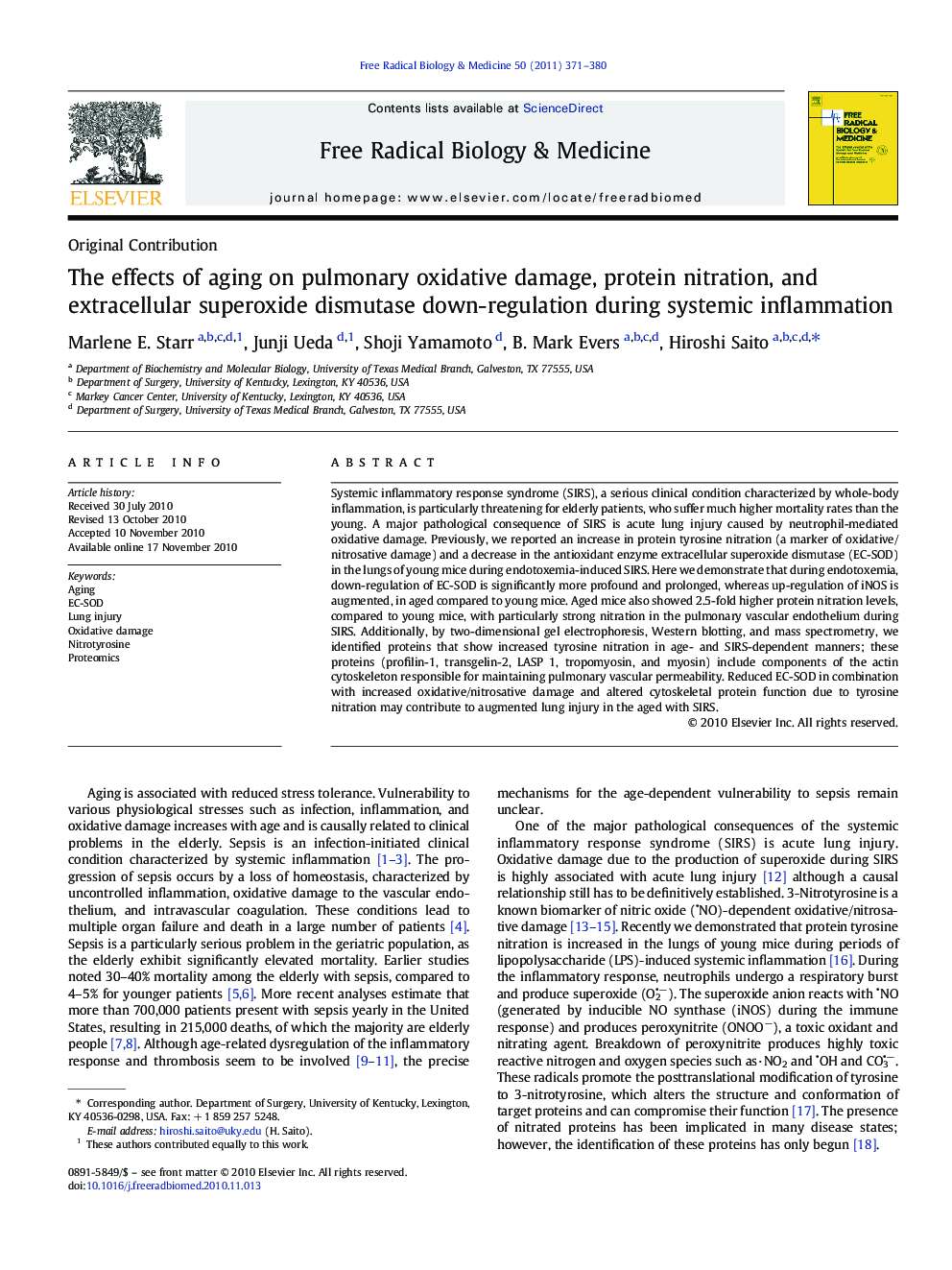| Article ID | Journal | Published Year | Pages | File Type |
|---|---|---|---|---|
| 1909626 | Free Radical Biology and Medicine | 2011 | 10 Pages |
Systemic inflammatory response syndrome (SIRS), a serious clinical condition characterized by whole-body inflammation, is particularly threatening for elderly patients, who suffer much higher mortality rates than the young. A major pathological consequence of SIRS is acute lung injury caused by neutrophil-mediated oxidative damage. Previously, we reported an increase in protein tyrosine nitration (a marker of oxidative/nitrosative damage) and a decrease in the antioxidant enzyme extracellular superoxide dismutase (EC-SOD) in the lungs of young mice during endotoxemia-induced SIRS. Here we demonstrate that during endotoxemia, down-regulation of EC-SOD is significantly more profound and prolonged, whereas up-regulation of iNOS is augmented, in aged compared to young mice. Aged mice also showed 2.5-fold higher protein nitration levels, compared to young mice, with particularly strong nitration in the pulmonary vascular endothelium during SIRS. Additionally, by two-dimensional gel electrophoresis, Western blotting, and mass spectrometry, we identified proteins that show increased tyrosine nitration in age- and SIRS-dependent manners; these proteins (profilin-1, transgelin-2, LASP 1, tropomyosin, and myosin) include components of the actin cytoskeleton responsible for maintaining pulmonary vascular permeability. Reduced EC-SOD in combination with increased oxidative/nitrosative damage and altered cytoskeletal protein function due to tyrosine nitration may contribute to augmented lung injury in the aged with SIRS.
